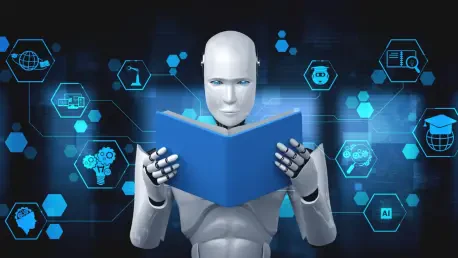In the rapidly changing landscape of educational technology, Indianapolis Public Schools are embarking on an ambitious journey to integrate artificial intelligence into their educational framework. This initiative comes in response to the growing importance of AI tools in education, aiming to enhance teaching methodologies while preserving student privacy and educational integrity. At the heart of this transformation is a pilot program designed to test AI’s capabilities, empowering teachers and staff to utilize these tools effectively. This pilot program is the district’s stepping stone into a future where AI is integrated thoughtfully without compromising the core values and standards of education. The district’s approach emphasizes gradual introduction and thorough evaluation of these technologies, ensuring they align with both educational goals and privacy standards.
Implementing AI in Education
The Indianapolis Public Schools’ pilot program kicked off with a yearlong exploration involving 20 staff members who experimented with a district-approved AI tool. This initial phase was crucial for understanding how AI can be strategically implemented to benefit the educational process without introducing incongruities. The data gleaned from this pilot is now being used to formulate a comprehensive policy designed to establish secure and effective AI environments that complement the curriculum. By concentrating primarily on the staff’s interaction with AI, the program seeks to develop best practices for introducing new technologies in a manner that is both responsible and effective. While experimenting with AI, the district remains steadfast in its commitment to not impose unsuitable learning conditions on students.
The draft policy currently being developed is steeped in ethical considerations, underscoring the necessity of equitable outcomes across the district. Provisions under federal regulations like the Family Educational Rights and Privacy Act are paramount in the district’s AI strategy, ensuring that the utilization of technology harmonizes with existing legal frameworks for student data protection. The draft outlines various potential uses for AI, such as assisting in drafting communications, creating data summaries, enhancing lesson plans, and automating tedious administrative tasks. These applications are rooted in the pilot program’s findings, which demonstrated success in decreasing the cognitive load on staff, thereby enabling educators to devote more attention to complex and analytical tasks that require human insight.
Addressing Challenges and Privacy Concerns
However, the district faces a range of intricate challenges as it explores AI technologies, especially those related to tools like chatbots, including ChatGPT and Google Gemini. These tools, while powerful, bring with them concerns about inherent biases and the risks to privacy due to their all-encompassing data collection and processing capabilities. A significant apprehension remains that even inadvertent usage of freely available AI tools could lead to potential breaches of sensitive student information. In order to prevent hasty and potentially harmful implementations, the district is leaning towards a well-assessed, gradual introduction of these tools, particularly in student-centric applications, to avert privacy violations and other risks.
To navigate these complexities, Indianapolis Public Schools have taken the proactive step of establishing an “AI Advisory Committee.” This committee, composed of administrators, teachers, and technology and legal experts, will play a pivotal role in providing ongoing assessments of AI tools and managing their deployment across the district. Even though the timeline for the committee’s establishment is not strictly defined, its function as a guiding body emphasizes the district’s commitment to a thoughtful and informed approach to technology adoption. This overarching strategy aligns with broader educational trends focusing on rigorous evaluation before a full-scale implementation of AI, aiming for sustainable integration rather than hasty adaptations.
Pilot Expansion and Long-Term Vision
The district’s careful and phased methodology evidences a growing movement among educational institutions experimenting with AI, underscoring their cautious optimism. By initially focusing on adult users and securing a robust regulatory framework, Indianapolis Public Schools exemplify a modern approach to adopting technology in education. This deliberate process reflects a larger consensus that understanding the potential risks and benefits of AI is crucial before introducing such tools to the student population. Furthermore, it underscores the district’s intent to avoid prematurely acquiring multiple systems that could later prove unsuitable or ineffective for future needs, demonstrating a preference for long-term equilibrium over transient fixes.
The subsequent phase of the pilot will expand to accommodate more staff members using the AI tool Google Gemini, with each user contributing a negotiated cost for the current school year. As the initiative progresses, the district aims to assess comprehensively how AI tools can be effectively integrated into broader operations by the upcoming school year. A commitment to equipping staff with adequate training forms the backbone of this strategy. The district has crafted an extensive professional learning roadmap grounded in feedback from the preliminary phase, seeking to bridge any knowledge gaps in understanding AI’s nuances without overwhelming staff. This educational roadmap is indicative of the district’s long-term commitment to competent and informed usage of AI technology.
A Future of Responsible AI Use
Indianapolis Public Schools initiated a pilot program focused on exploring artificial intelligence with 20 staff members who experimented with an AI tool approved by the district. This exploratory phase was vital in grasping how AI can be strategically integrated into the educational process while avoiding inconsistencies. Insights gained are now informing a comprehensive policy aimed at creating safe and effective AI environments that enhance the curriculum. The program is dedicated to refining best practices for responsibly incorporating new technologies, emphasizing staff interactions with AI. The district is committed to preventing unsatisfactory learning conditions for students during this process.
The ongoing draft policy highlights ethical considerations, ensuring equitable outcomes district-wide. Federal regulations, like the Family Educational Rights and Privacy Act, play a crucial role in safeguarding student data. The draft includes potential AI applications such as drafting communications, summarizing data, refining lesson plans, and streamlining administrative tasks, proven to reduce cognitive load on staff from the pilot program’s insights.









